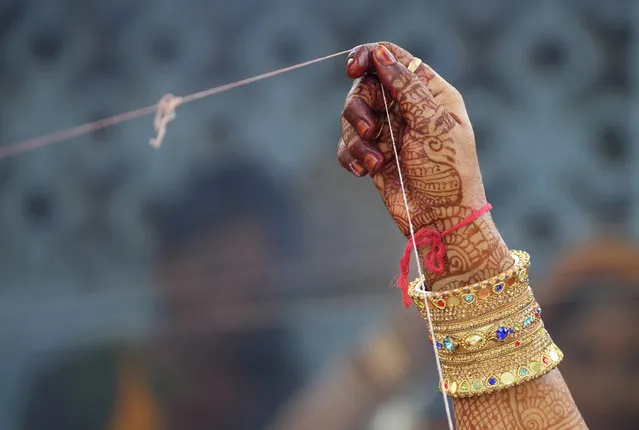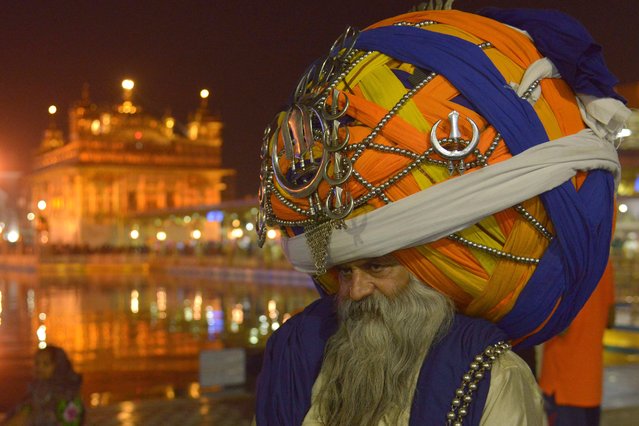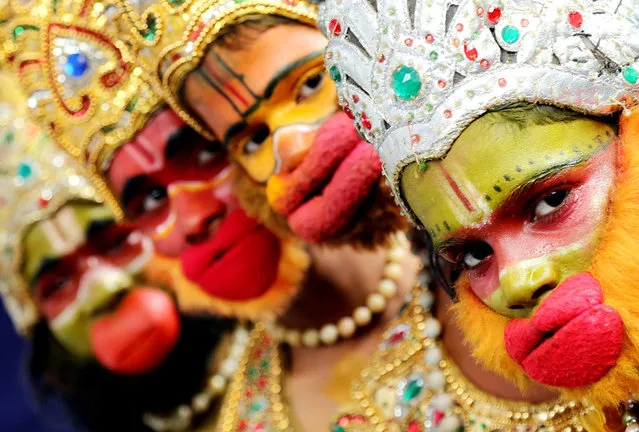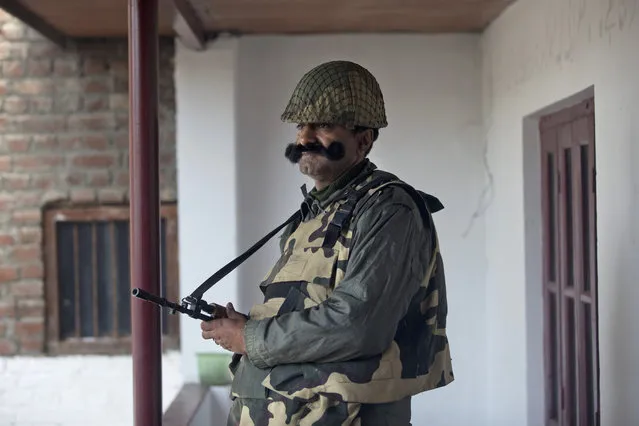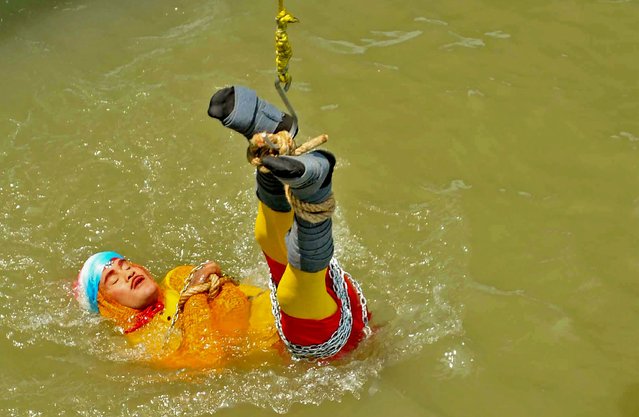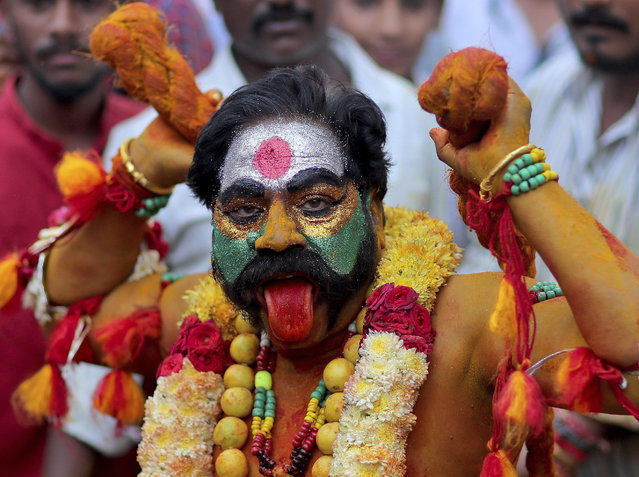
A devotee of Hindu goddess Kali performs a ritual during the “Bonalu” festival in Hyderabad, India, Sunday, July 28, 2019. Bonalu is a month-long Hindu folk festival of the Telangana region dedicated to Kali, the Hindu goddess of destruction. (Photo by Mahesh Kumar A./AP Photo)
31 Jul 2019 00:03:00,post received
0 comments

